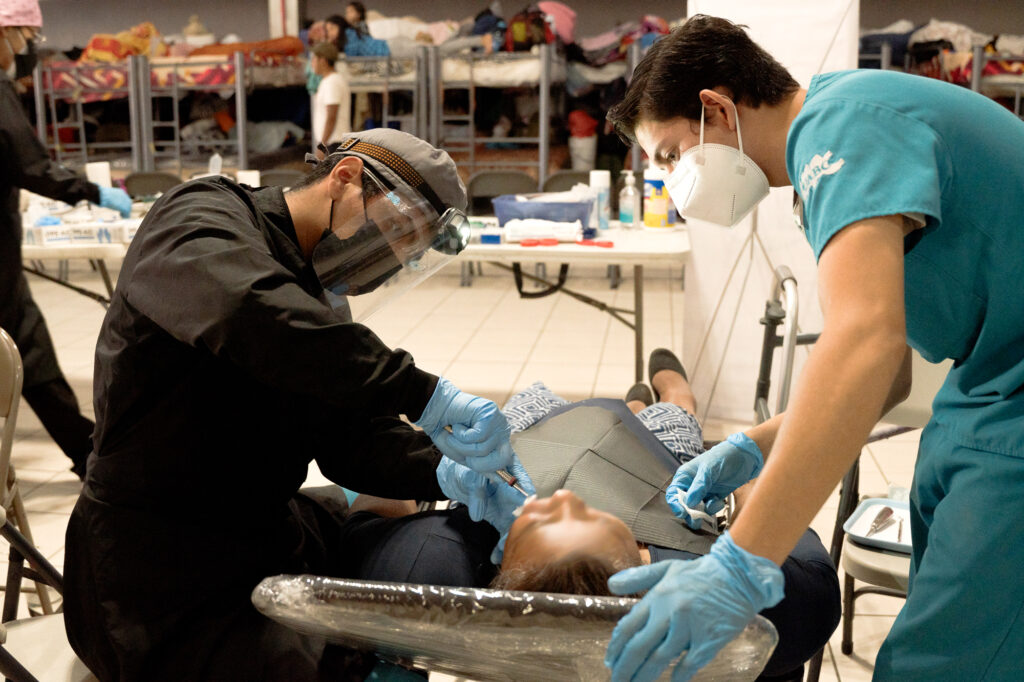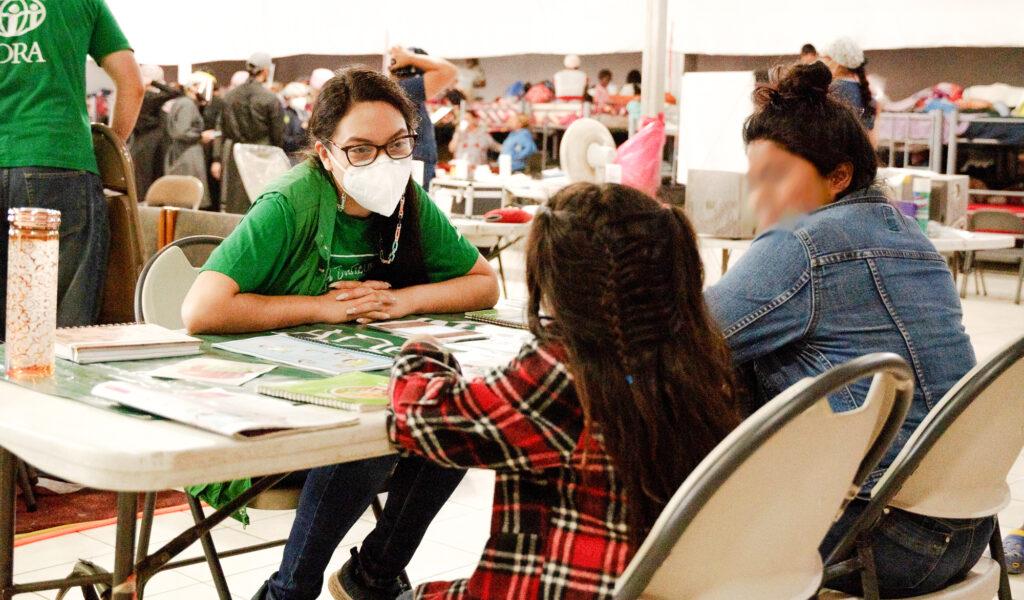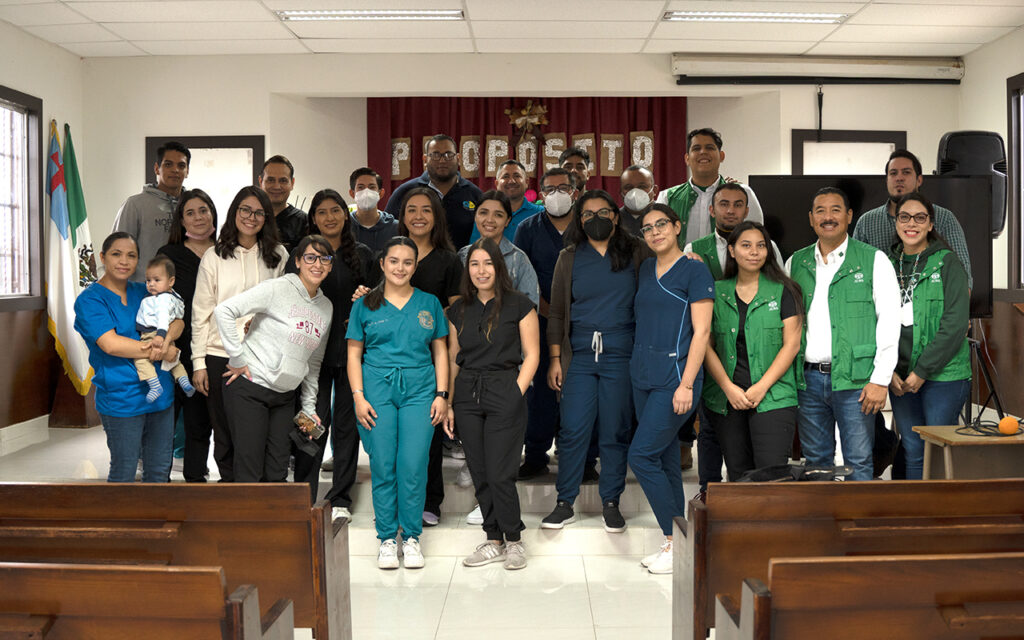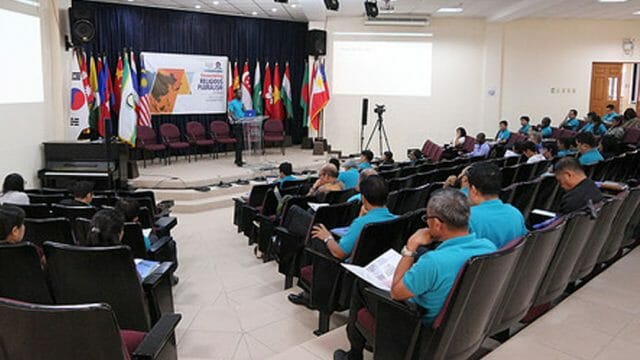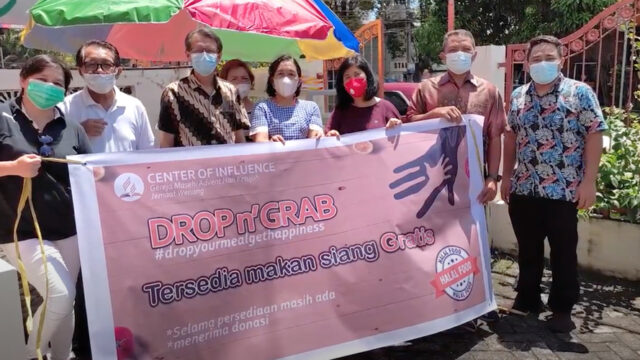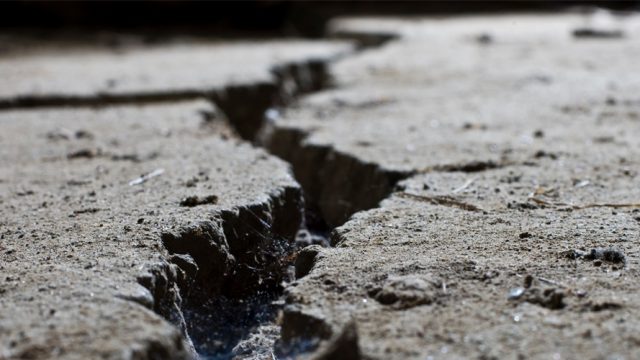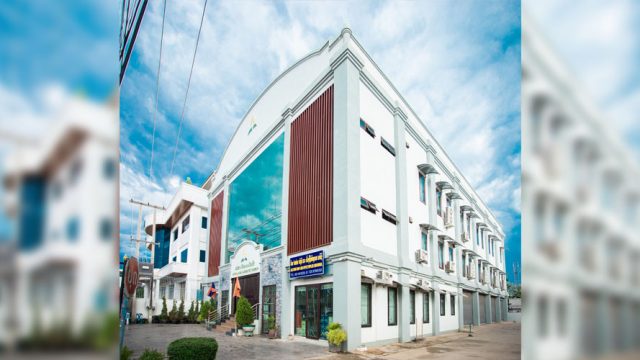Initiative seeks to improve quality of life as they decide what to do with their lives.
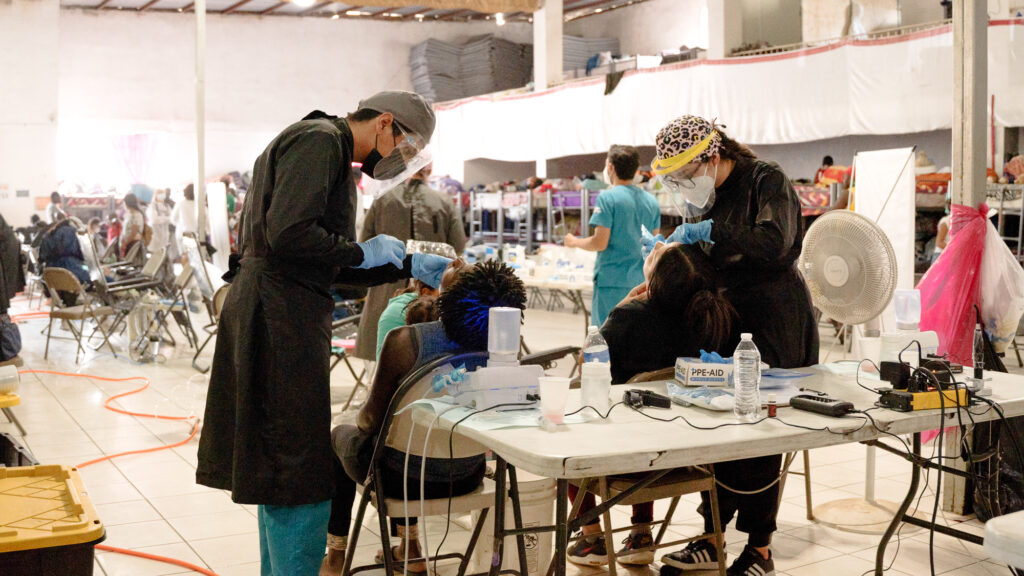
The Adventist Development and Relief Agency (ADRA), in coordination with Adventist health professionals and volunteers from the Autonomous University of Baja California, Mexico, recently joined efforts in Baja California to provide medical services to dozens of migrants in two shelters in Tijuana.
The ADRA initiative, which has been running since March 2022, seeks to assist migrants with much-needed medical services. These migrants have left their home countries of Haiti, Honduras, Nicaragua, Guatemala, El Salvador, and other states in Mexico, and now seek temporary shelter as they attempt to move north to the United States.
This time, 50 volunteers offered nutritional care, dental services, and psychosocial support, as well as workshop activities for children. Volunteers were coordinated by a group from ADRA’s Emergency Response Team (ERT) in collaboration with the Adventist medical ministry in the region.
“This service to the shelters makes a larger impact because every week that we come with ADRA’s Emergency Response Team, we notice that the needs are so great here that it requires the support of many more volunteers,” ADRA ERT director Carlos King said.
A handful of health professionals travel once or twice a month or sometimes more to provide services to a dozen or so migrants during the four hours they visit the shelters, he explained.
Tijuana is known as one of the main border crossing areas in Mexico and, according to the Secretariat of the government of Baja California, in 2021 more than 31,000 migrants were identified in immigration offices or shelters. The number of those who pass through going north is likely greater than officially reported.
The Ambassadors of Jesus and Little Haiti shelters can house up to 1,400 people and are always full. Migrants usually stay for a few days, or weeks, or even several months before they head north or figure out their next move, King explained. The shelters are run by a Baptist church organization.
During the six hours that the large health brigade visited on September 17, the nine chairs designated for the dental services section were kept filled, with dozens of patients moving through quickly, medical ministry coordinator Josue Armenta said. “We were very happy to see 64 patients with various dental needs, including some with serious conditions,” he said. About 181 people benefited from the medical services initiative.
“God has blessed us with the opportunity to have more mobile equipment for this kind of assistance,” Armenta said. “We now have an X-ray machine that better allows us to see the oral condition of each patient, to provide them better medical attention.” More equipment is needed, he said, but it is a blessing to be able to help so many right now.
“Thank you for coming to care for us and support us,” Guadalupe, a 60-year-old woman who uses a walker, said. She traveled with her children from Honduras. They have been staying at the shelter for more than a month. “I have several health problems, but thanks to this visit, my tooth doesn’t hurt anymore,” Guadalupe said.
Among the ERT volunteers was Veronica Robles, who has an education degree and assisted minors with psychosocial activities. Robles has witnessed great emotional needs at the shelters and said she is happy to provide support during the hours she visits with the team. “I find it rewarding, the fact that I was able to share a little of my knowledge with them, and above all, show them love,” Robles said. “I worry, though, as to the types of persons they will become if they do not receive a follow-through when it comes to their mental health.”
Coined as “Let’s Go Together,” the ADRA project is expected to expand to larger efforts and to continue providing medical assistance to migrants in the coming weeks and months.
The original version of this story was posted on the Inter-American Division news site.


